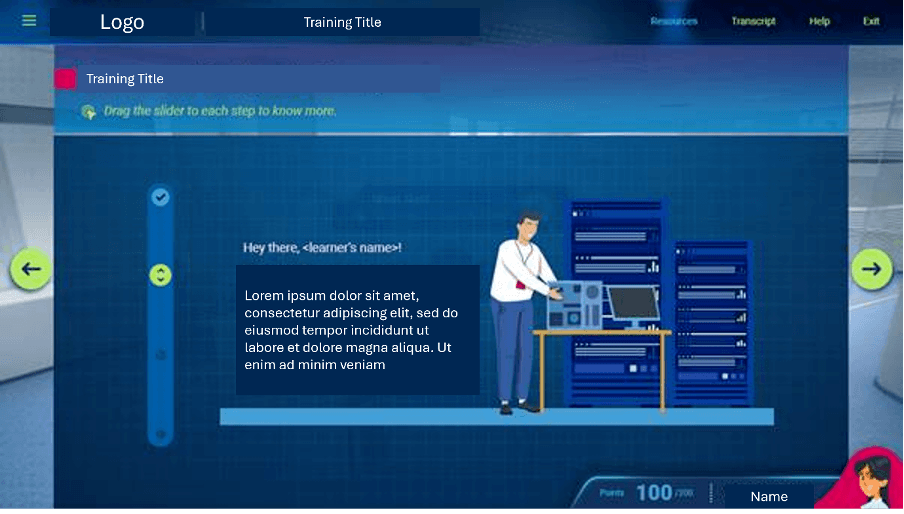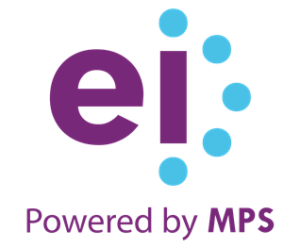
The Evolving Landscape Of Technical Skills Development
As technology continues to transform learning, targeted learning strategies that elevate technical skills training assume a central role in contributing to organizational agility and success.
A recent survey has revealed that a whopping 90% of the respondent organizations are concerned about employee retention and that providing employees with learning opportunities remains the top retention strategy. This is because evolving workplaces are driven by growing integration of digital tools and automation, changing the technical skills training landscape, lowering employee engagement, and further exacerbating concerns about employee retention.
A closer look at the evolving landscape of technical skills development reveals:
- Skill building as a priority – Technical skill training is crucial for organizations to help employees adapt to technological advancements like AI and automation. By prioritizing technical skill training, organizations can enhance overall employee productivity, improve employee retention, and stay competitive in a fast-paced digital economy. However, most organizations are found struggling to execute large-scale initiatives effectively.
- Complex and evolving skills landscape – Rapid technological advancements, shifting job requirements, and an increasing demand for specialized knowledge has only made the skills landscape more complex. Such a dynamic environment requires shifting from traditional qualifications to a more skills-based approach with flexible technical skills training programs that can support workforce development and equip employees with the capabilities to respond to changing market needs.
- AI-driven workforce planning – AI-driven actionable insights facilitate workforce planning, making informed decisions about hiring, training, and employee development, and maintaining greater agility and competitiveness in an increasingly complex labor market. Advanced algorithms and data analytics help analyze employee performance, identify skills gaps, and monitor market trends, to inform offering personalized technical skills training, resource allocation optimization, and anticipating future talent needs in an organization.
- Reskilling and the global talent shortage – A global talent shortage poses a significant challenge in finding qualified candidates. This talent shortage has created an urgency for reskilling. However, many organizations do not have the adequate infrastructure or resources to scale up critical technical skills training and close skills gaps.
Supporting Learner Growth Across Proficiency Levels
Before administering technical skills training, assessing a learner’s capabilities and readiness for more advanced concepts or tasks can help inform tailoring learning strategies to each proficiency level and ensuring optimal skill development.
Learners Introduced To New Technologies
Focus: At the foundational level, when learners are just beginning to work with new technologies, the focus is on initial exposure to allow them to understand basic concepts, functionalities, build essential skills, and develop confidence in applying these technologies in various contexts.
Strategy: To build confidence and understanding in learners at this initial stage, implement a structured onboarding process that includes comprehensive tutorials and interactive exercises. Incorporate diverse learning modalities, such as guided demonstrations and self-paced activities. Create a supportive environment where learners can progressively engage with technology and find opportunities for hands-on practice.
Learners Applying Skills In Real-World Scenarios
Focus: This is the intermediate stage where learners are refining skills and applying them in practical tasks. Here the focus is on problem solving and critical thinking to navigate complex situations, adapt their skills to varied contexts, and understand the implications of their decisions in real time.
Strategy: To enable learners to apply the acquired skills in real-world scenarios, incorporate project-based learning, mentorship, assessments, constructive feedback, and personalized support. This will facilitate continuous improvement and reinforce their confidence throughout the skill development journey.
Learners Progressing Toward Skill Mastery
Focus: At this level, learners have acquired knowledge about advanced techniques and are optimizing performance through self-reflection, goal-setting, critical thinking, and problem solving, across complex and varied situations. While progressing toward skill mastery, the focus is on deepening the understanding, refining their capabilities through practice, and continuous improvement.
Strategy: To facilitate progress toward skill mastery, provide complex real-world challenges, encourage leadership roles, and offer mentorship opportunities. Promote critical thinking, adaptability, and taking ownership by engaging learners in intricate projects, peer-led learning sessions, and advanced certifications. Furthermore, deepen their expertise through knowledge sharing and building a community that encourages continuous growth and development.
Continuous Learning And Staying Current (Applicable To All Proficiency Levels)
Focus: Learners at all levels need to stay current with trends and technologies. Therefore, focus on building a culture of lifelong learning that promotes adaptability and openness to new knowledge and skills, ensuring employees remain relevant and competitive in an evolving scenario.
Strategy: To ensure employees remain competitive and adaptable, encourage them to engage in ongoing learning and reinvest in their skills. Create an environment that values and supports knowledge sharing and collaboration. Provide resources and opportunities for continuous professional development, such as offering access to online courses, workshops, webinars, industry conferences, and participating in networking events.
Essential eLearning Strategies For Building Technical Expertise
Building technical expertise in a backdrop where learners must continuously upgrade their skills, gives rise to the need for adopting essential eLearning strategies. These eLearning strategies, as described below, help equip learners with the necessary technical competencies, while also enhancing engagement and employee retention.
- Personalized learning: Leverage data and technology to create personalized learning paths for deeper engagement with the content and improved outcomes. Empower learners to take charge of their skill development and career progress at their own pace by tailoring the learning experience according to the needs, preferences, and interests of each learner.
- Simulations: Use simulations to replicate real-world scenarios that allow learners to experiment with decision-making, problem-solving, critical thinking, and to practice and apply skills in a safe and controlled environment. Provide feedback to improve understanding of complex concepts, deepen learners’ expertise, and enhance knowledge retention.
- Video Instructor-Led Training: Use Video Instructor-Led Training that delivers live or recorded sessions by instructors, to guide learners through specific concepts, techniques, or processes in a structured format. A combination of visual and auditory learning, where participants can see real-time demonstrations and explanations, makes complex information more accessible and engaging. Supplement technical skills training with interactive elements such as quizzes, discussions, real-time interaction, and expert guidance for greater comprehension and retention.
- Microlearning: Deliver just-in-time and relevant information through bite-sized microlearning modules that focus on specific skills or concepts. Make it easier for learners to absorb and retain information, while also offering the flexibility to the learners to engage with the material at a time and place of their own choice.
- Performance support: Integrate performance support into the workflow to enhance productivity and reduce errors. Reinforce skills and help employees perform tasks confidently and efficiently by providing just-in-time resources such as on-the-job tools, job aids, quick reference guides, and mobile applications that provide immediate access to information and guidance when needed.
- Video-based learning: Offer on-demand video-based learning for learners to absorb information through visual and auditory channels, with the flexibility to review material at their own pace and revisit challenging topics. Use a variety of formats, such as lectures, tutorials, animations, or case studies to make complex concepts more engaging and easier to understand.
- Regular assessments and feedback loops: Implement regular assessments and feedback loops, such as quizzes, assignments, or practical demonstrations, to identify knowledge gaps and the areas that may need improvement. Provide constructive feedback to enable learners to adjust their learning strategies, reinforce concepts, and enhance overall skill development.
- Social learning (mentorship and peer learning): Implement social learning, facilitated through mentorship and peer learning, to emphasize the importance of collaboration, interaction, and shared experiences in the learning process. Create a learning environment that allows exchange of ideas, sharing diverse perspectives, and learning from each other’s experiences, to enhance understanding and foster a sense of community engagement.
- Gamification: Incorporate game design elements and principles into technical skills training to encourage learners to take risks and strive for achievement. Integrate features like points, badges, leaderboards, and challenges, for a more interactive and enjoyable learning experience, improved knowledge retention, and greater learner engagement and motivation.
- Continuous learning: Encourage individuals to seek out learning opportunities, stay updated with industry trends, and adapt to evolving technologies and practices, ensuring they remain relevant and competitive in a fast-paced environment. Promote a culture of continuous learning to improve employee engagement, overall performance, and personal growth and career advancement.
A Compelling Case Study: Technical Training For System Managers At A Leading Biotechnology Company
Objective: The aim of the technical skills training within the organization is to provide system managers with the knowledge and skills, particularly those who do not report to corporate IT, to comprehend their duties, obligations, and the relevant policies. This undertaking is meant to promote uniform control of business applications, improve contextual data security, and elevate the user experience across the organization.
Solution: To fill knowledge gaps in systems management, an immersive virtual training program was created. This course guides learners on an engaging journey through a fictional technical hub, using interactive features and real-life scenarios to illustrate TSMs’ vital roles. The training blends photorealistic images with gamified exercises to provide a memorable and effective learning experience.
Key features:
- The technical skills hub’s interactive virtual map allows learners to explore departments and functions in a realistic 360-degree environment.
- Role-playing involves shadowing coworkers to learn real-time responsibilities and best practices.
- Engaging activities, such as technical challenges and games, reinforce critical topics and keep learners engaged.
- A futuristic bot offers guidance and context during the training journey.
- Scenario-based exercises promote retention by requiring learners to apply their knowledge in real-world circumstances.
Implementation: The training was made available through the corporate Learning Management System (LMS) as part of an enterprise-wide TSM awareness drive. Collaboration across User Engagement, IT Communications, IT Enterprise Services, and IT Learning & Development resulted in more efficient deployment and engagement, ensuring that all participants had access to the resources and support they required.
Impact: Participants’ initial evaluations show a significant increase in their grasp of TSM responsibilities and policies. Learners indicated increased confidence in their roles and taking a proactive approach to dealing with system management challenges. Following the training, the TSM community became more cohesive and accountable, with 99% compliance. This program has not only improved individual performance, but it has also contributed to increased departmental efficiency and a solid IT governance framework within the firm.

Conclusion
Effective learning strategies to build technical expertise are more critical today than ever before. This is because the landscape of work continues to evolve; and organizations need skilled employees to navigate the challenges of the future and ensure sustainable growth in an increasingly complex world.
Strategies such as personalized learning, simulations, and gamification are useful in creating engaging and effective technical skills training programs that cater to diverse learning needs. Furthermore, integrating social learning, continuous assessments, and mentorship creates a collaborative environment where knowledge sharing and peer support thrive, ultimately leading to a more skilled and resilient workforce.
Organizations that prioritize investing in essential eLearning strategies for technical skills training and creating a culture of continuous learning are better positioned to respond more effectively to market demands, retain talent, and maintain a competitive edge.

EI
EI is an emotionally intelligent learning experience design company that partners with customers in their Digital Transformation journey.